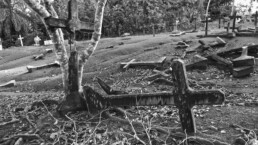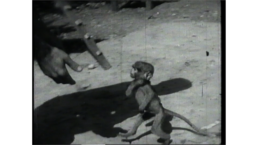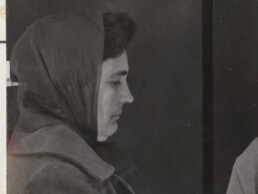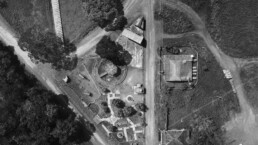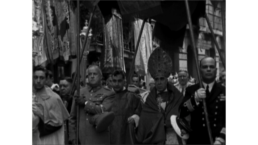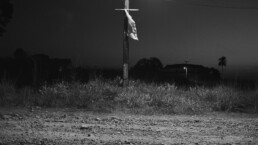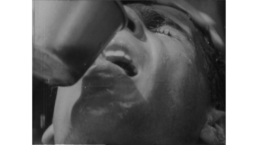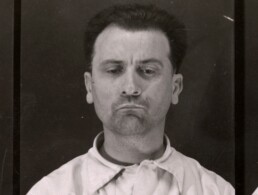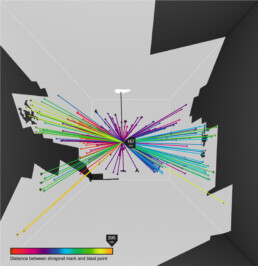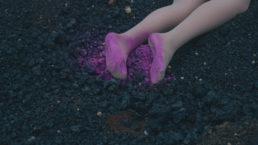FUSO INSULAR 2021 – 27 a 31 de Outubro
27 Outubro, 19h30
31 Outubro, 18h
Arquipélago – Centro de Artes Contemporâneas, Ribeira Grande
CICLO DE CINEMA SUSANA DE SOUSA DIAS
O FUSO INSULAR amplia a sua programação e apresenta um Ciclo de Cinema dedicado ao pensamento e à criação da artista convidada Susana de Sousa Dias.
O cinema de Susana de Sousa Dias não deixa o espectador indiferente. É rigoroso e perturbador e ao mesmo tempo de uma construção extremamente elaborada do ponto de vista artístico. O seu conteúdo histórico é importante e rico. Susana lida com memórias através de uma nova linguagem cinematográfica, além de trabalhar com a música e o som de forma inovadora.
Em co-produção com o Arquipélago – Centro de Artes Contemporâneas, o Ciclo de Cinema apresenta três filmes emblemáticos da realizadora: o mais recente, Fordlandia Malaise (2019), composto das memórias e do presente da cidade fundada por Henry Ford na Amazónia em 1928; Natureza Morta (2005), filme que procura redescobrir e interrogar as imagens de arquivo feitas durante a ditadura portuguesa; e 48 (2009), documentário sobre os 48 anos de ditadura em Portugal (1926-1974) a partir de uma série de fotografias de prisioneiros políticos.
Arte e Política, temas para reflexão no Ciclo de Cinema Susana de Sousa Dias.
FORDLANDIA MALAISE
Filme sobre o presente e a memória de Fordlândia, uma company town fundada por Henry Ford na floresta amazónica em 1928, para escapar ao monopólio britânico da borracha. Hoje, o que permanece das construções atesta a escala do fracasso deste empreendimento neo-colonialista que durou menos de uma década.
Actualmente, a Fordlândia é um espaço suspenso; suspenso entre tempos (séculos XX e XXI), entre utopia e distopia, entre visibilidade e invisibilidade: construções arquitectónicas de aço, vidro e alvenaria ainda permanecem em uso enquanto vestígios da vida autóctone não deixaram qualquer marca no solo.
Embora Fordlândia seja conhecida devido ao curto período Fordiano, não se pode esquecer a história anterior e posterior a estes anos.
Dando voz aos habitantes que, rejeitando o rótulo de cidade-fantasma, reclamam o direito de escrever a sua própria história, Fordlandia Malaise combina imagens de arquivo, filmagens de drone, testemunhos, contos e narrativas, mitos e canções.
NATUREZA MORTA
Dentro de uma imagem esconde-se sempre outra imagem. Utilizando apenas materiais de arquivo e sem recorrer a palavras, Natureza Morta redescobre e penetra na opacidade das imagens captadas durante os 48 anos da ditadura portuguesa (actualidades, reportagens de guerra, documentários de propaganda, fotografias de prisioneiros políticos, mas também rushes nunca utilizados nas montagens finais), permitindo a sua reabertura a diferentes leituras.
48
O que pode uma fotografia de um rosto revelar sobre um sistema político? O que pode uma imagem tirada há mais de 35 anos dizer sobre a nossa actualidade?
Partindo de um núcleo de fotografias de cadastro de prisioneiros políticos da ditadura portuguesa (1926-1974), 48 procura mostrar os mecanismos através dos quais um sistema autoritário se tentou auto-perpectuar.
FUSO INSULAR 2021 – October 27th to 31st
October 27th, 9.30pm
October 31st, 8.00pm
Arquipélago – Centro de Artes Contemporâneas, Ribeira Grande
SUSANA DE SOUSA SIAS FILM’ CYCLE
FUSO INSULAR expands its programming and presents a Film Cycle dedicated to the thought and creation of the guest artist Susana de Sousa Dias.
The cinema of Susana de Sousa Dias does not leave the viewer indifferent. It is rigorous and disturbing and, at the same time, extremely elaborated from an artistic point of view. Its historical content is important and rich. Sousa Dias deals with memories, through a new cinematic language, and works with music and sound in an innovative way.
In co-production with the Archipelago – Centre for Contemporary Arts, the Film Cycle presents three emblematic films of the director: the most recent, “Fordlandia Malaise” from 2019, is composed of the memories and the present of the city founded by Henry Ford in the Amazon in 1928; “Natureza Morta” (Still Life), from 2005, is a film that seeks to rediscover and question the archival images that were taken during the Portuguese dictatorship; and “48“, from 2009, is a documentary about the 48 years of dictatorship in Portugal (1926-1974) departing from a series of photographs of political prisoners.
Art and Politics are the themes for reflection in Susana de Sousa Dias’ Film Cycle.
FORDLANDIA MALAISE
Fordlandia Malaise is a film about the memory and the present of Fordlandia, the company town founded by Henry Ford in the Amazon rain forest in 1928.
His aim was to break the British rubber monopoly and produce this material in Brazil for his car production in the United States. Today, the remains of construction testify to the scale of the failure of this neocolonialist endeavor that lasted less than a decade.
Nowadays, Fordlandia is a space suspended between times (20th and 21st centuries), between utopia and dystopia, between visibility and invisibility: architectural buildings of steel, glass and masonry still remain in use while traces of indigenous life left no marks on the ground.
Although Fordlandia is well-known due to the short lasting Fordian period, one must not forget the history either before or after.
Giving voice to the inhabitants who claim the right to write their own story and reject the ghost town label, Fordlandia Malaise blends together archive imagery, drone footage, tales and narratives, myths and songs.
NATUREZA MORTA
Within an image, another one is always hiding. Using only archive footage and without words, Still Life aims to rediscover and delve into the opacity of images made during the 48 years (1926-1974) of Portuguese dictatorship (news, war footage, propaganda documentaries, photos of political prisoners and also previously never seen rushes) in order to foster new interpretations.
48
What can a portrait photograph reveal about a political system? What can a picture taken 35 years ago tell us about our contemporary society?
Based on photographs taken on the arrest of political prisoners during the Portuguese dictatorship (1926-1974), 48 aims to convey the mechanisms by which a dictatorial regime seeks to self-perpetuate.
